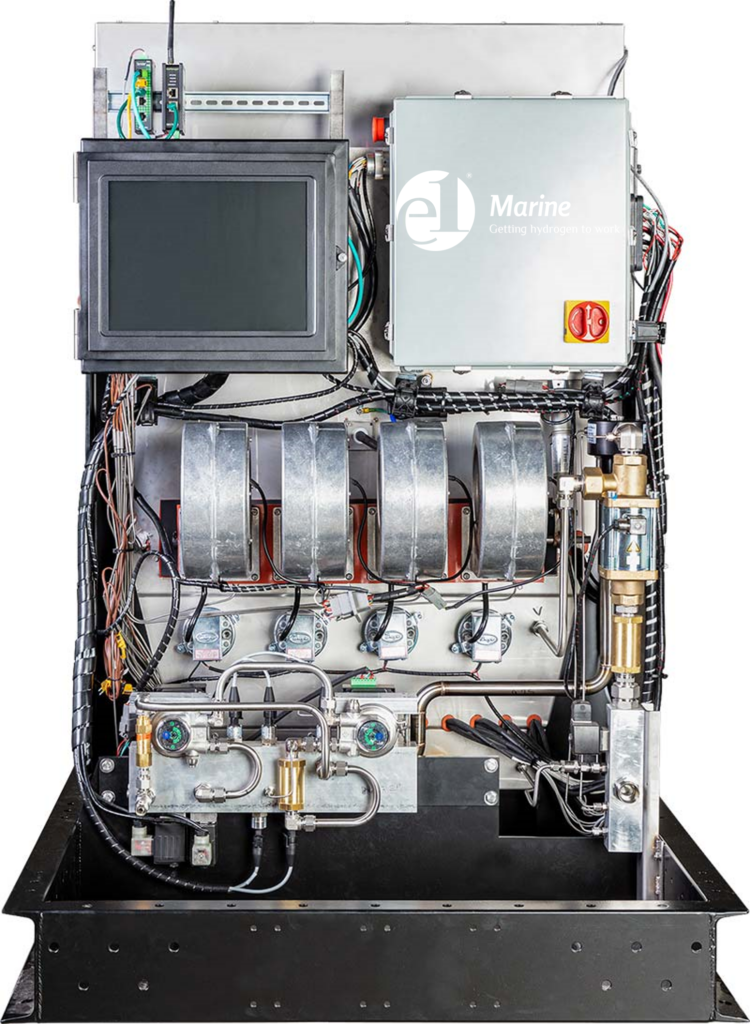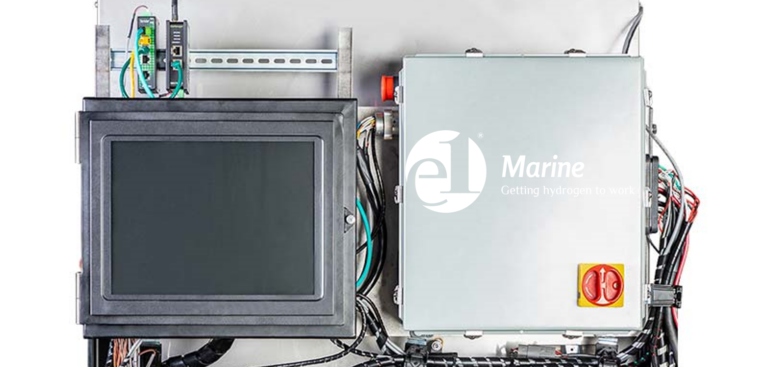Global renewable energy company e1 Marine has received approval in principle (AiP) from the Republic of the Marshall Islands (RMI) Maritime Administrator for its M-series methanol-to-hydrogen generator for marine application on any vessel type.
This follows an AiP from Lloyd’s Register in May 2022 and further confirms the technology’s ability to deliver low-carbon energy to the maritime sector.
The company’s hydrogen technology can generate fuel-cell-grade hydrogen from methanol and water on-site, on board and on demand. The hydrogen output meets all current and relevant ISO standards and is ideal for use with fuel cells to generate electricity or supplement the standard fuel of a conventional engine. The solution is also said to provide a viable pathway to green energy.
“The M-series methanol-to-hydrogen generator is making hydrogen a viable fuel option for the maritime industry for vastly different applications,” said Robert Schluter, managing director of e1 Marine. “The AiP letter from the RMI Maritime Administrator is one step forward in our efforts to work with flag states to support vessel decarbonization. Our technology emits zero NOX, SOX and particulate matter emissions, which is helping to meet regulation and also assist with the potential for a carbon tax. This technology delivers a proven efficiency gain over legacy internal combustion engines with a more reliable, safer and greener fuel than traditional marine bunkers, and we look forward to demonstrating this in the near future.”
“Shipowners are under pressure to reduce emissions in line with International Maritime Organization (IMO) measures,” added Gary Noonan, director of innovation at Ardmore Shipping. “For Ardmore, the IMO 2030 and 2050 timelines are targets that we are trying to meet and exceed but this means taking innovative and comprehensive strategies to achieve this. When combined with PEM fuel cell technology, the e1 Marine Methanol Reformer costs are comparable with a Tier III generator set. However, it also shows more than a 25% relative improvement when comparing energy efficiencies in typical operation. This helps vessels to improve Carbon Intensity Indicator ratings and can be maximized further when using green methanol.”
“It is essential to create the right infrastructure to support sustainable shipping practices and protect marine life and coastal communities,” commented David Wamsley, deputy commissioner of maritime affairs at the RMI Maritime Administrator. “Collaborating on new innovative technologies, like e1 Marine’s M-series methanol-to-hydrogen generator, which will help shipowners explore new options for sustainable shipping, is one way to achieve this goal.”




